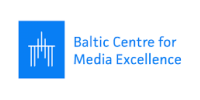Old Rezultāti un pētījumi
A Trend Report on Russia’s Disinformation Tactics Targeting the Baltics
Although more than a year has passed since Russia’s full-scale invasion of Ukraine, Russia has still not succeeded in achieving its goals – Ukraine and its people have still not given up, and Western countries have not stopped their efforts to restrain Russia and support Ukraine. Even more, NATO has expanded. Legally, pro-Kremlin disinformation tries to spread many different messages towards audiences in the Baltic States, including Latvia, hoping to impress local audiences and break the current status quo. It is true that pro-Kremlin disinformation is characterized by the stability and immutability of messages, thus the form and content of the same messages do not differ significantly from what has been experienced before.studies.
Whether their goal is to amass a following, oppose environmentally friendly policies, or resist what they perceive as “totalitarian global control”, a diverse group of disinformation spreaders has shifted its focus to the topic of climate change. This report provides an overview of how climate misinformation is disseminated in the Baltic States, shedding light on the tactics and actors involved in spreading false or misleading information on the topic of climate change.
Russia’s invasion of Ukraine on February 24th last year has altered its longstanding efforts to influence the information landscape of Latvia and the Baltic States through disinformation campaigns. This report highlights the central themes in these campaigns, ranging from accusations of widespread Russophobia to portrayals of Western countries as intellectual concentration camps. These narratives serve the Kremlin’s objectives of influencing public opinion and advancing its interests in the region.
In the wake of Russia’s ongoing invasion of Ukraine, pro-Kremlin disinformation campaigns have intensified their efforts to influence narratives in the Baltic States, particularly Latvia. These campaigns exploit a variety of themes to cast Russia as the victim and portray Latvia’s actions as hostile. A recurring theme is Latvia’s alleged subservience to Western countries and their policies, as well as its perceived role in fueling Russophobia and nationalism. This report delves into these narratives, highlighting their core elements and objectives while providing a comprehensive overview of the disinformation tactics employed.
Old Rezultāti un pētījumi
A Trend Report on Russia’s Disinformation Tactics Targeting the Baltics
Although more than a year has passed since Russia’s full-scale invasion of Ukraine, Russia has still not succeeded in achieving its goals – Ukraine and its people have still not given up, and Western countries have not stopped their efforts to restrain Russia and support Ukraine. Even more, NATO has expanded. Legally, pro-Kremlin disinformation tries to spread many different messages towards audiences in the Baltic States, including Latvia, hoping to impress local audiences and break the current status quo. It is true that pro-Kremlin disinformation is characterized by the stability and immutability of messages, thus the form and content of the same messages do not differ significantly from what has been experienced before.studies.
Whether their goal is to amass a following, oppose environmentally friendly policies, or resist what they perceive as “totalitarian global control”, a diverse group of disinformation spreaders has shifted its focus to the topic of climate change. This report provides an overview of how climate misinformation is disseminated in the Baltic States, shedding light on the tactics and actors involved in spreading false or misleading information on the topic of climate change.
Russia’s invasion of Ukraine on February 24th last year has altered its longstanding efforts to influence the information landscape of Latvia and the Baltic States through disinformation campaigns. This report highlights the central themes in these campaigns, ranging from accusations of widespread Russophobia to portrayals of Western countries as intellectual concentration camps. These narratives serve the Kremlin’s objectives of influencing public opinion and advancing its interests in the region.
In the wake of Russia’s ongoing invasion of Ukraine, pro-Kremlin disinformation campaigns have intensified their efforts to influence narratives in the Baltic States, particularly Latvia. These campaigns exploit a variety of themes to cast Russia as the victim and portray Latvia’s actions as hostile. A recurring theme is Latvia’s alleged subservience to Western countries and their policies, as well as its perceived role in fueling Russophobia and nationalism. This report delves into these narratives, highlighting their core elements and objectives while providing a comprehensive overview of the disinformation tactics employed.





